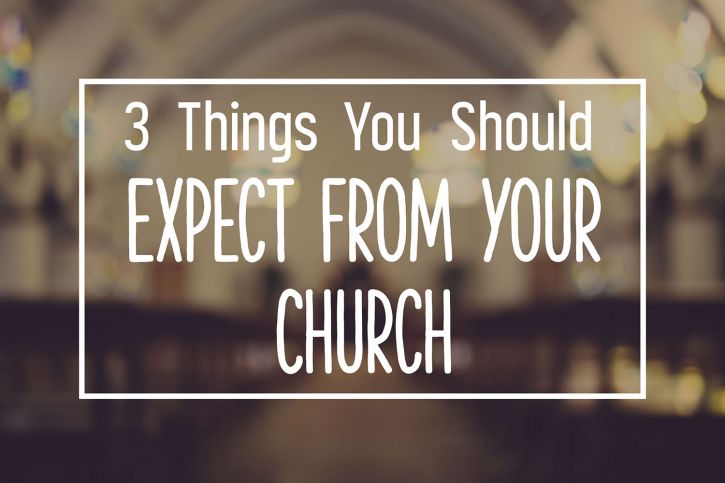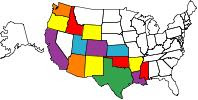For “Scripture Sunday”:
Names for Saturday in Many Languages Prove Which Day Is the True Sabbath
Which day of the week is the biblical Sabbath? It is clear from the names for the seventh day of the week, Saturday, in many languages.
 UCG.org
UCG.org
Such widespread use of forms of the word Sabbath for the seventh day of the week, Saturday, is clear evidence that speakers of these languages understood which day is the Sabbath.
Which day of the week is the biblical Sabbath? Many are confused over the issue, but such confusion is unnecessary. Not only is the answer plain from history and the Bible, it is also clear from the names for the seventh day of the week, Saturday, in many languages.
For example, the Spanish word for the seventh day of the week, Saturday, is sabado — the same word for “Sabbath.” In fact, in more than 100 ancient and modern languages the seventh day of the week was named “Sabbath” or its equivalent. Following is a list of names for the seventh day of the week, Saturday, in 24 languages in which the root word Sabbath is still easily recognizable.
Such widespread use of forms of the word Sabbath for the seventh day of the week, Saturday, is clear evidence that speakers of these languages understood which day is the Sabbath.
Likewise, the fact that in no language do we see “Sabbath” similarly linked with Sunday, the first day of the week, is an obvious confirmation that this day never was considered the biblical Sabbath until later religious leaders tried to substitute Sunday for the true Sabbath day.
Arabic: Sabet
Armenian: Shabat
Bosnian: Subota
Bulgarian: Sabota
Corsican: Sàbatu
Croatian: Subota
Czech: Sobota
Georgian: Sabati
Greek: Savvato
Hebrew: Shabbat
Indonesian: Sabtu
Italian: Sabato
Latin: Sabbatum
Maltese: is-Sibt
Polish: Sobota
Portuguese: Sábado
Romanian: Sambata
Russian: Subbota
Serbian: Subota
Slovak: Sobota
Slovene: Sobota
Somali: Sabti
Spanish: Sabado
Sudanese: Saptu
Ukranian: Subota
 infographic-sabbath-saturday-proof-for-the-sabbath-comes-from-many-different-languages-black-white-print (2.03 MB)
infographic-sabbath-saturday-proof-for-the-sabbath-comes-from-many-different-languages-black-white-print (2.03 MB)
![]() infographic-sabbath-saturday-proof-for-the-sabbath-comes-from-many-different-languages-color-print (5.79 MB)
infographic-sabbath-saturday-proof-for-the-sabbath-comes-from-many-different-languages-color-print (5.79 MB)
____
The 'Feasts of the Lord' in the Book of Acts
“Regarding the feasts of the Lord, it is very instructive to study the history of the first 30 years of the Christian Church recorded in Scripture. What Holy Days did they keep? It's surprising how many of "the feasts of the Lord" are found in the book of Acts.
 Tyler Olson/Hemera/Thinkstock
Tyler Olson/Hemera/Thinkstock
We do not find in the book of Acts—a chronicle of the first 30 years of Church history—that the feast days had been changed or abolished, or other days substituted in their place.
Regarding the feasts of the Lord, it is very instructive to study the history of the first 30 years of the Christian Church recorded in Scripture. What Holy Days did they keep? It’s surprising how many of “the feasts of the Lord” are found in the book of Acts.
The first mention of God’s feasts in the book of Acts is found in Acts 2:1: “When the Day of Pentecost had fully come, they were all with one accord in one place.” This day of Pentecost is one of God’s feasts found in Scripture.
Then in Acts 12, two of “the feasts of the Lord” are mentioned—the Passover and the Days of Unleavened Bread (Acts 12:3-4). Peter was miraculously freed from his chains at that time, and the Church rejoiced over this liberation. Many would have remembered that during this day, the Israelites were also freed from their Egyptian bondage.
Later Luke, in describing his travels with Paul, mentions sailing after the Days of Unleavened Bread were over, showing they had stayed to observe them in Philippi before continuing their trip (Acts 20:6).
Moreover, Luke records Paul “hurrying to be at Jerusalem, if possible, on the Day of Pentecost” (Acts 20:16). If these feasts were only for the Jews and abolished for Christians, they certainly would not have been mentioned as important for Paul and his party.
Finally, we see Luke mentioning another feast, the Day of Atonement, in their travels: “Now when much time had been spent, and sailing was now dangerous because the Fast was already over …” (Acts 27:9). “The Fast” is referring to the Day of Atonement, the only day in Scripture commanded by God to be observed with a fast (Leviticus 23:27).
So we find not an inkling in the book of Acts—a chronicle of the first 30 years of Church history—that the feast days had been changed or abolished, or other days substituted in their place. Rather, they assumed a much greater meaning to the Christian community. The Encyclopaedia Britannica confirms this, stating that “the first Christians … continued to observe the Jewish festivals, though in a new spirit, as commemorations of events which those festivals had foreshadowed” (11th edition, vol. 8, p. 828). From: https://www.ucg.org/the-good-news/the-feasts-of-the-lord-in-the-book-of-acts
________
Update.
More stuff has been sorted for sale and for donating this week. The consignment shop doesn’t take some of the items that I have for sale, so I am on my own again.
The company that sold me the wrong new top for my canvas carport/storage tent, and I, came to an agreement. Even if they sent someone here to take it down, pack it and ship it back, then I would still have to pay someone to help me put up a new one. So they are supposed to send me a refund. Zack, my neighbor who helps me, and I did some modifications on the canopy top and added some clear vinyl shower curtains so that it wouldn’t leak.
One day I took Lauri to the grocery store to buy her organic apples and organic cigarettes. I bought quite a few veggies in the marked-down section, and cooked the spaghetti squash, butternut squash, yellow squash, rutabagas, turnips, spinach and zuccini when I got home. Then I stored them in big mason jars. as I like to keep a lot of cooked veggies on hand so that I can nosh on them when I need to. It is so easy to prepare dinner when a lot of it is already done.
I was given a great big 6 lb square slab of frozen ground beef, so I had to get a big square electric frying pan out of my yard sale items and cook it in that. When it was all defrosted, I put it in a big pot on the stove with some seasonings and water to simmer for a while, then strained it. The liquid was very greasy, but by putting it in the fridge, the fat solidified on the top so I could throw that out and keep the seasoned broth. Now I had something to work with, as I don’t eat any fat like that, as “the fat you eat, is the fat you wear”. I froze half of the cooked meat, and made the rest into beef and noodles to take to church in a crockpot. In another crockpot I took some mashed rutabagas. They said it was very tasty.
Due to varied reasons there was hardly anyone at church, but we had a good service anyway. There was so much food left over that we froze it for this next Sabbath. That will help me a lot, as the pastor and his wife won’t be there, so I will be ramrodding the kitchen again. Then my granddaughter, Michelle’s wedding is on that day, too.
The Bible readings were Num. 25:10–30:1, 1 King 18:46-19:21 and Rom. 11:2-32. The Teaching was “The Inseparable Messiah”.
Not very many folks there, but it was still a good day.
 Ümit Bulut/Unsplash
Ümit Bulut/Unsplash Maybe, Here’s how to write a Thanksgiving blog:
Maybe, Here’s how to write a Thanksgiving blog:
 In A.D. 31, the Church of God started with the coming of the Holy Spirit on the Feast of Pentecost (Acts 2). The people behind Life, Hope & Truth commemorate that day.
In A.D. 31, the Church of God started with the coming of the Holy Spirit on the Feast of Pentecost (Acts 2). The people behind Life, Hope & Truth commemorate that day. 










